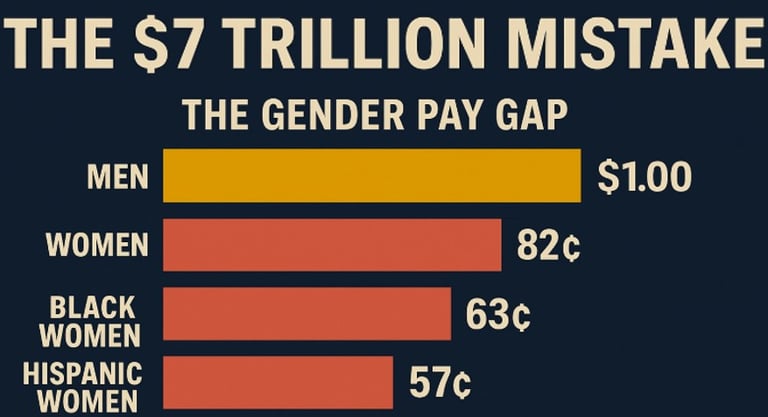

If the U.S. economy were a car, we’d be driving with one flat tire, and that tire is our failure to fully support women in the workforce. Not just “rah-rah girl power” support. Real, structural, universal childcare, equal pay, paid family leave, the boring-sounding stuff that actually moves numbers and lives.
We keep pretending this is a “personal choice” issue. It’s not. It’s an economic own-goal. Here’s why:
1. Universal Childcare Is Not a Luxury — It’s an Economic Multiplier
Countries with affordable, accessible childcare have higher female workforce participation, stronger GDP, and fewer women forced into part-time work. In the U.S., nearly 2 million women are still sidelined because childcare costs more than their rent. When women leave the workforce, companies lose talent, families lose income, and our economy loses growth.
2. The Wage Gap Is a Wealth Gap
On average, women earn 82 cents for every dollar men earn — and that gap has only narrowed slightly over the past two decades, according to Pew Research Center. For Black women? 63 cents. For Hispanic women? Just 57 cents. That isn’t just about this month’s paycheck — it compounds over decades into hundreds of thousands of dollars in lost retirement savings, lower Social Security benefits, and reduced generational wealth. The “lean in” pep talks don’t cover the fact that you can’t invest money you never earn.
3. The Motherhood Penalty Hits Hard — and Hardest for Women of Color
Professional women face a 4% drop in earnings for every child they have. Fathers? They often get a pay bump. Hispanic and Black mothers are more likely to work in industries without paid leave, meaning they take unpaid time off, lose promotions, or drop out entirely. This isn’t “the price of parenthood” — it’s the cost of a broken system.
4. When Women Work, Everyone Wins
The Peterson Institute for International Economics found that companies with more women in leadership, when those roles come with absolute authority, resources, and pay equity, are more innovative, more profitable, and more resilient during crises. Not surprisingly, universal childcare could add $7 trillion to the U.S. GDP over the next decade. More income for women means more spending in local communities, more stability for families, and a stronger tax base. Equality isn’t charity, it’s ROI.
The truth is, our economy is like a leaky bucket - we keep pouring in talent and letting it drip away because we won’t fix the holes. Universal childcare, pay equity, and paid family leave aren’t “perks.” They’re the foundation for a workforce that actually works.
And if you think this is just a “women’s issue,” congratulations, you’ve just admitted you don’t understand how economies grow.